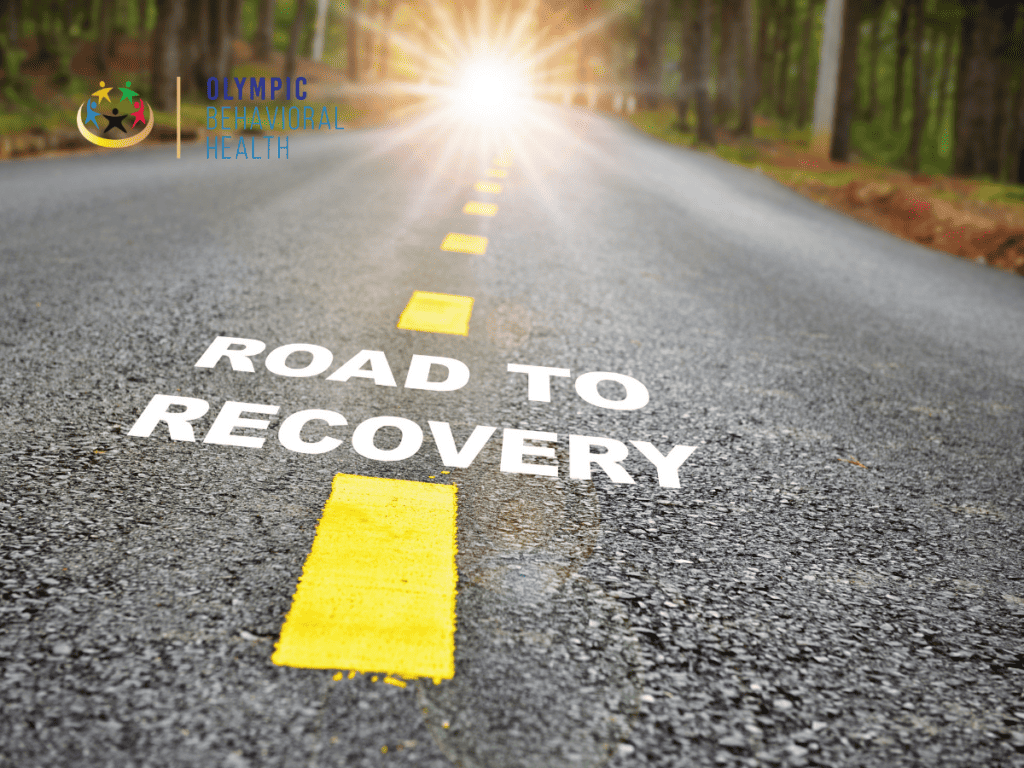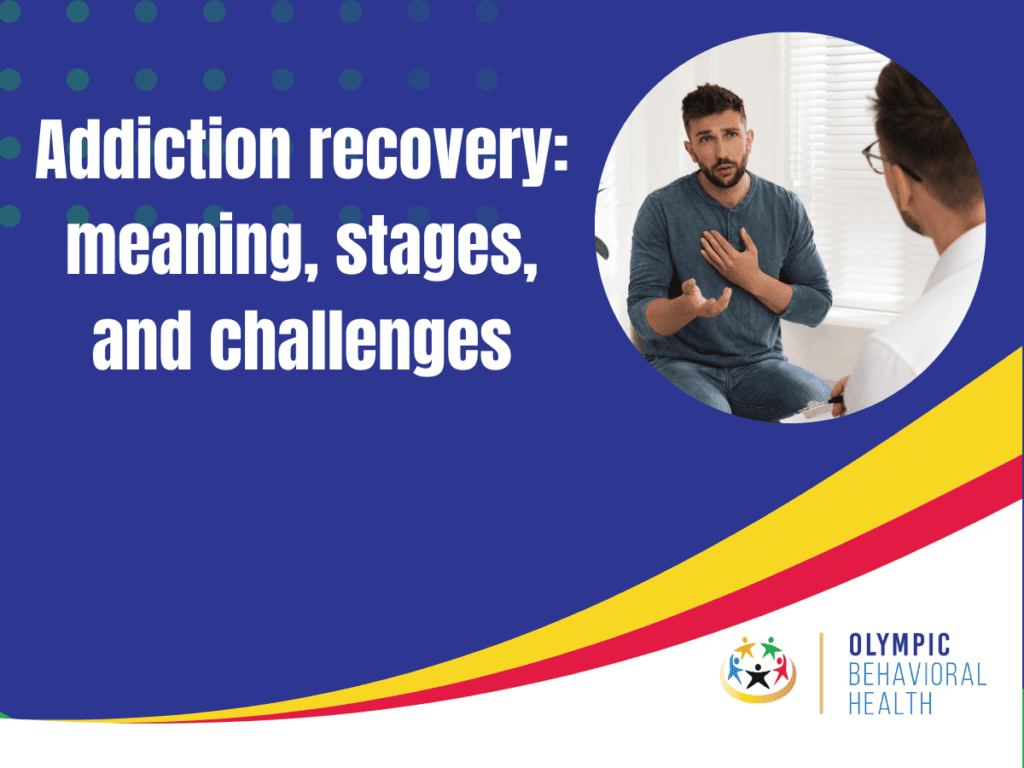Experiencing an addiction or substance use disorder (SUD) can create significant problems in a person’s life. The good news is that recovery is attainable. The journey to overcome addiction is unique for each person and does not follow a strictly linear path. The duration of the recovery stages differs, mirroring the personalized nature of an individual’s healing process, which is as distinct as their experience with addiction.
According to the U. S. National Survey on Drug Use and Health, approximately 75 percent of addicts or substance users recover. There is no one-size-fits-all recovery pathway. There are inpatient and outpatient facilities. Some hospitals also provide addiction recovery care. Some people also prefer the use of peer support groups in the community.
Embarking on the recovery journey from a substance use disorder is prolonged and demanding, yet ultimately feasible. It demands time, commitment, and perseverance, but with the right support, individuals can successfully liberate themselves from addiction.
What is the Definition of Addiction Recovery?
The earliest definition of addiction recovery was by the Betty Ford Institute in 2007. They describe recovery as a ‘voluntarily maintained lifestyle characterized by sobriety, personal health, and citizenship.’ In 2008, control over substance use was added by the UK Drug Policy Commission.
Addiction recovery is therefore a personal and gradual process associated with several aspects of a person’s life. It goes beyond simply avoiding the substance in question.

What are the 3 Stages of Recovery?
The Betty Ford Institute Consensus Panel of 2007 outlined 3 stages of addiction recovery. Each stage is specific and transitions into the next.
Stage 1: Abstinence or Transition
The initial stage of addiction recovery marks the commencement of the journey towards sobriety. It spans one to two years, characterized by a focus on overcoming cravings and preventing relapse.
Key actions during this phase include acknowledging the addiction, being honest about substance use behavior, practicing saying no, finding alternative sources of enjoyment, avoiding substance-using friends, engaging in self-help groups, and identifying and managing triggers.
High relapse risk during this stage emphasizes the importance of stress avoidance and realistic expectations. Seeking advice and support from trusted individuals is encouraged, aiding in navigating the challenges of abstinence or transition.
Stage 2: Repair or Early Addiction Recovery
The second stage involves addressing the damages caused by substance use, leading to an increased sense of control over one’s life. Actions during this phase include recognizing that addiction does not define an individual, prioritizing self-care, adopting a healthier lifestyle, releasing feelings of shame, guilt, anger, or fear, repairing relationships, and attending counseling or self-help groups regularly.
The risk of relapse during this stage is associated with neglecting self-help sessions, emphasizing the importance of continued interaction with like-minded individuals. Building connections and friendships within these groups can provide valuable tips, advice, and support.
Stage 3: Ongoing Addiction Recovery and Growth
Upon reaching the third stage, individuals start feeling stronger in their commitment to a sober life. Recovery, however, lacks a specific timeline, being a continuous journey rather than a fixed destination. Tips for this stage include identifying and changing negative thoughts or behaviors, letting go of past resentments, practicing relaxation techniques, setting and maintaining boundaries, reaching out to others in recovery, and regularly evaluating and adapting one’s progress.
Recovery is ultimately about reclaiming life from the clutches of addictive substances, to lead a productive, healthy lifestyle. It’s a personal journey toward reaching one’s full potential, demonstrating that recovery is a continuous process of growth and self-discovery.

What Challenges are Associated with Recovery?
Completing a drug and alcohol rehab program is a significant accomplishment. Re-entering society as a sober individual, however, presents its own set of unique challenges. Understanding these challenges faced during recovery helps to shed light on the transformative journey. Here are some prevalent personal issues encountered in the process, along with insights into how a rehab program can assist in overcoming them:
Developing New Coping Strategies
Getting sober is not just about abstaining from substances but also entails establishing a lifestyle that supports recovery. Developing new coping strategies to manage stress, anxiety, and cravings is a crucial aspect. This is a challenge because individuals might have to learn new skills and develop new interests.
Addressing Trauma and Shame Without Substances
Many individuals turn to drugs and alcohol as coping mechanisms for trauma and shame. During recovery, people confront these issues without the aid of substances, requiring considerable effort, time, and courage.
Building and Repairing Relationships
Building new relationships and repairing old ones is essential for a successful life in recovery. During recovery, individuals are challenged to communicate healthily, trust others, and be vulnerable. Making amends with loved ones is a crucial step, albeit challenging, contributing to the liberation from the old life of addiction and embracing a new life in recovery.
Boredom
Following a structured daily schedule in a treatment program helps individuals during recovery. However, this repetition may lead to boredom, posing a potential threat to sobriety. Learning to use free time productively, engaging in activities like meditation, reading, or sports, and considering a sober living program can help maintain a structured lifestyle.
Relapse
Cravings, stress, anxiety, and old acquaintances pose challenges, making relapse a significant concern. Rehab programs focus on establishing life skills, modifying unhealthy behaviors, and developing a peer support system. Even if a relapse occurs, the support system aids quick recovery, emphasizing that setbacks do not equate to failure.
Finding Purpose
Post-rehab, individuals may struggle with a lack of purpose. Developing new hobbies and interests, such as yoga, art, music, and meditation, can help you discover and develop passions, creating a meaningful life beyond substance abuse.
Transitioning out of Rehab
Making the transition from rehab to independent sobriety involves managing increased responsibilities. This shift can be challenging, and enrolling in a transitional living program provides structure, accountability, peer support, and assistance in employment and education, facilitating a smooth adaptation to a new, sober lifestyle.

Additional Questions
At what point is someone considered recovered from addiction?
Recovery from addiction is not a definitive endpoint but rather a continuous process. There is no universal standard for declaring someone fully recovered. It varies for each individual and depends on factors such as the substance involved, the severity of addiction, and the effectiveness of the chosen treatment. Many consider recovery an ongoing journey marked by sustained abstinence, improved well-being, and a commitment to a sober lifestyle.
How long does recovery take?
The duration of recovery is highly individualized and varies based on several factors. The nature and severity of the addiction, the chosen treatment approach, and the individual’s commitment all play a role. Recovery is often viewed as a lifelong journey rather than a fixed timeline. Initial treatment phases, such as rehabilitation programs, may last weeks to months, but ongoing efforts and support are typically needed to maintain sobriety.
Does recovery always require treatment?
While treatment can significantly enhance the chances of successful recovery, it is not always mandatory. Some individuals can achieve recovery through self-directed efforts, lifestyle changes, and the support of friends and family. However, for many, especially those with severe addictions, professional treatment such as therapy, counseling, or rehabilitation programs is often recommended to address underlying issues and provide structured support.
Do 12-step programs help?
Yes, 12-step programs, such as Alcoholics Anonymous (AA) and Narcotics Anonymous (NA), have been instrumental in aiding recovery for many individuals. These programs provide a supportive community, a structured framework for personal development, and a set of guiding principles. However, their effectiveness varies from person to person.
What role do family members play in recovery?
Family members can provide support, understanding, and encouragement can significantly impact an individual’s journey toward sobriety. Family members may participate in therapy sessions, educational programs, or support groups to enhance their understanding of addiction and learn how to provide effective support. Family involvement helps create a robust support system that reinforces the individual’s commitment to staying sober.
What is the best way for a drug or alcohol withdrawal?
The best way for a drug or alcohol withdrawal varies for each individual and depends on their level of addiction and support system. In general, the most effective approach involves a combination of medically supervised detoxification, therapy, support groups, and a strong support network.
This may also include medication-assisted treatment depending on the substance being abused. It is important to have a personalized treatment plan and to work closely with a healthcare provider to ensure a safe and successful recovery.
To learn more about the importance of support networks in addiction recovery, read our article.
How does the brain influence addiction?
Addiction is a complex disorder that involves changes in the brain. The brain plays a critical role in addiction by influencing the reward pathways and creating a strong desire to use substances. Specific brain areas, such as the prefrontal cortex and the limbic system, are affected by addictive substances, leading to changes in decision-making, impulse control, and emotional regulation.
These changes can make it difficult for individuals to stop using addictive substances even when they want to. Understanding the role of the brain in addiction can help individuals and their loved ones in the recovery journey. For more information on the brain and addiction, check out this article.
Get help for your Addiction
Addiction Treatment at Olympic Behavioral Health offers help and support for those struggling with addiction. Taking the first step can be difficult, but it is crucial to call for assistance. Our facility in West Palm Beach provides comprehensive addiction treatment programs to guide individuals towards recovery. If you or your loved one is battling addiction, reach out to Olympic Behavioral Health today.

Share This Post



